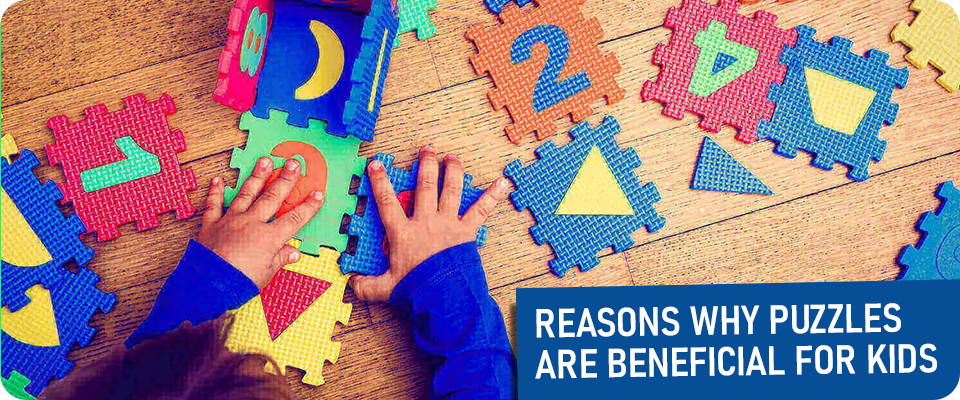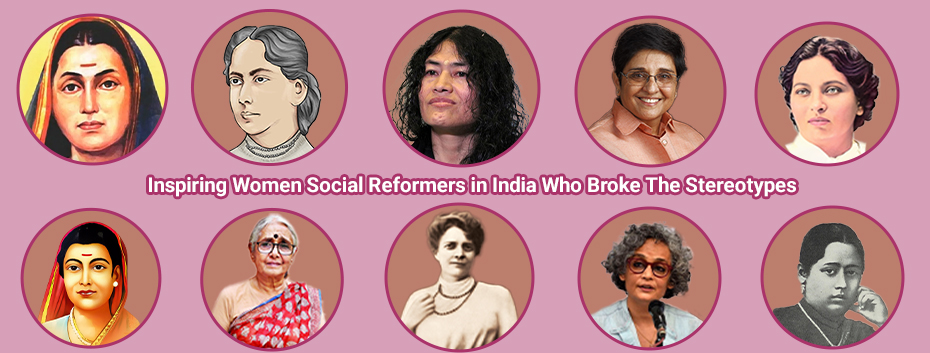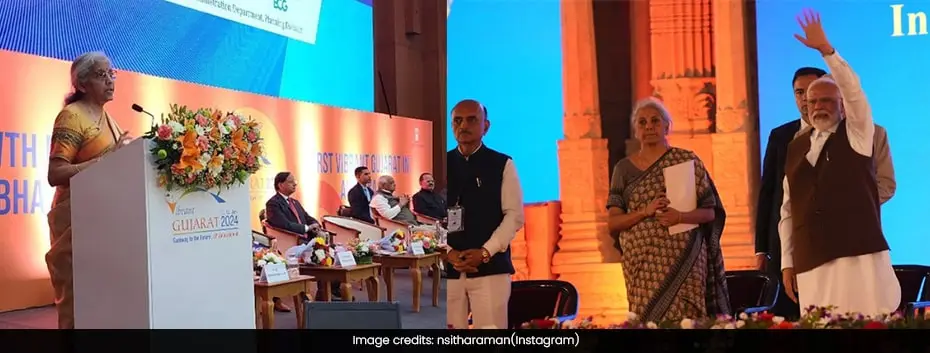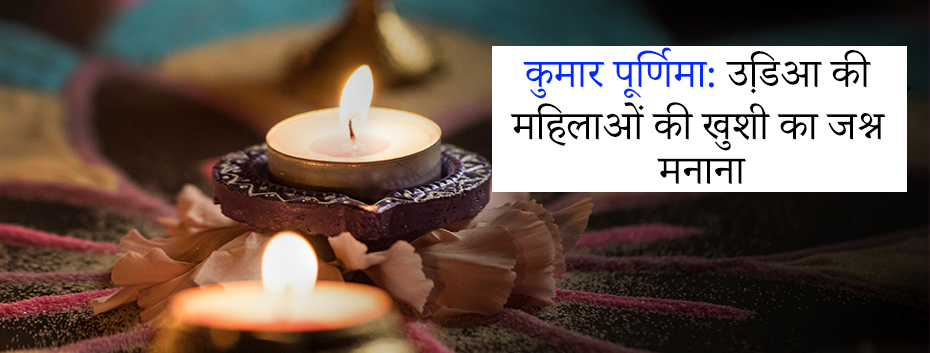![]() English
English
Parenting
Reasons Why Puzzles Are Beneficial For Kids

The first thing that comes to mind after hearing the word puzzle is that it is a means to pass the time, for fun, or just a hobby for most people. But the hidden truth is that apart from being a thing to kill time, it has numerous health benefits, especially for kids. Fortunately, only a few activities, including puzzles do not require staring at the screen or technology for a long time. For example, doing jigsaw puzzles provides exercise for the brain and reduces the risk of Alzheimer’s in the later stages.
Puzzles have been around for decades together. Research studies show that puzzling impacts positively on a child’s brain development and in adults as well. Even medical professionals and psychologists agree that puzzles provide the opportunity for kids to explore and shape the world around them as they like. Puzzles develop many skills making them perfect for educational play during their childhood years. Now let us explore the various benefits such as cognitive and spatial skills on kids as they work with puzzles.
Benefits of Puzzling For Kids
Here are listed most of the benefits that your kids can attain upon solving puzzles or simply puzzling.
Improved Concentration and Memory Power
Completing any kind of puzzle is not a quick job. It takes time which further means it requires deep concentration. According to child specialists, on average, a child’s concentration can last up to 2-5 times their age. For example, if your kid is 4 years old, the kid might be able to concentrate for 20 minutes.
The advantage of this is that a kid can work on a single task for a longer amount of time without getting interrupted. The only task for parents is to choose a puzzle appropriate for their kids’ age. Puzzling improves memory power in your kids. Like if they have completed a puzzle and want to solve it again, this time they can complete it faster than the last time because they remember the process.
Hand-to-eye Coordination
When a child tries to solve a puzzle, especially jigsaw puzzles, they learn about the connection between their eyes and hands. The eyes capture the puzzle and then the brain tries to envision how the puzzle would like and looks for the piece. Then the brain, eyes, and hands coordinate with each other to find the piece, place them accordingly and slowly complete the puzzle accurately.
Shape Recognition
When kids see a puzzle their eyes are seeing the shapes, size, form, and other details, and all these pieces of information are transmitted to the brain to interpret what might it be that they are seeing. This is known as visual perception. Through this, kids will come to know about various shapes and learn names.
Visual perception is essential in learning to read & write. This way building or solving puzzles will be one of the best pre-activity for early literacy and other aspects such as visual memory, visual comprehension, visual discrimination, visual analysis & synthesis, and visual closure.
Fine Motor Skills and Gross Motor Skills
Handling the small pieces of the puzzle gives kids a good sense of strength. It improves finger muscle strength. They have to repeatedly turn, lift, place, and hold them carefully which requires good control. Floor puzzles require the movement of the whole body which in turn enhances the gross motor skills. These strengthen the larger muscles by stretching their bodies to complete the puzzle.
But the puzzles must be appropriate and suitable to your kid’s age. It is important to choose the right puzzle for the right age.
Problem-Solving Skills and Logical Thinking
Puzzles are fun but basic problem that makes use of strategies to complete a puzzle. For example, grouping the same colored pieces, keeping aside the edge pieces, and many more. Flipping the pieces upwards to easily recognize them and choose the next suitable piece.
This can help your child in breaking down a larger task into smaller ones to tackle the problem easily. Furthermore, it can help the child in applying logical thinking in other aspects of life, like finding something.
Boosts self-confidence
The satisfaction and contentment received after completing a puzzle is immense. Children, after looking at the complete picture they created on their own with no messy piece remaining are bound to boost their self-confidence. The happiness they attain upon completing this difficult job would increase their self-esteem.
Encouraging them to keep going and celebrate with them once it is done would even improve their confidence level.
Patience and Attention Span
As mentioned earlier, cracking a puzzle needs patience which kids don’t possess a lot of. Children are often impulsive and they want what they wish for right at the moment. Playing a puzzle will help your children to develop patience. Additionally, puzzling even increases the attention span of your kids.
Teamwork and Social Skills
Puzzles work well in building teamwork. If your kids have cousins or friends you can make them solve puzzles together. This way, kids can talk their way through finishing the puzzle together. They can give clues to each other, compliment along the way and finish the puzzle quicker.
Spatial Learning
Spatial learning is nothing but learning the relations between how objects are placed in the multidimensional space and how they are relative to each other. For example, b and d. The difference between the positioning of the above two letters and the orientation will be understood through playing puzzles.
Meditative Advantages
As they frequently play puzzles, their minds will be completely focused and in the middle of searching for particular shapes, and colored piece, their stress, and anxieties are going to be channelled down through puzzling.
Additional benefits
Altogether, puzzles are fun and provide relaxation for your kids and develop perseverance. Puzzling is a calming activity and relieves your kids of tiredness. It is also a great tool to wind down after an active play session. Not only kids, but even adults enjoy puzzles including the senior people.
Puzzles Suitable for toddlers
There are a few puzzles that are suitable for toddlers to get hands-on experience with. Some of those are listed below.
- Shape sorter
- Wooden Piece puzzles
- Peg Puzzle
- Cube puzzles
- Puzzles with wooden boards
Puzzles suitable for pre-schoolers
There are a few puzzles that are suitable for pre-schoolers to get hands-on experience with and might end up liking them. Some of those are listed below.
- Wooden puzzles in a tray (9-piece puzzles, 12-piece puzzles, 20-piece puzzles, and 24-piece puzzles)
- Cube puzzles
- Floor puzzles
- Number and letter puzzles
- Geographical puzzles
- Printable Jigsaw puzzles for preschoolers
Conclusion
Through this blog, it is clear that puzzles are not just for fun. These pave the way for the development of the brain, soft skills, and personality in your kids. It helps them in the later stages of life and even helps in avoiding a few brain-related problems such as Alzheimer’s and others. Altogether, puzzles are a good activity for your kids.
FAQs
Are puzzles good for children?
Yes, puzzles are good for children as it helps with the child’s brain development.
What are the benefits of puzzling for children?
Cognitive functions, Spatial relations, shape recognition, improved concentration, and memory power are some of the benefits of puzzling for children.
How do puzzles help the brain?
Increased logical thinking and other cognitive functions are some of the things that puzzles help in brain development.
What is the best age to start puzzles?
Parents can start giving shape puzzles to their toddlers between the age of 13-15 months.
Can adults play with puzzles?
Yes, puzzles are for everyone. It can be played by kids to senior citizens which includes adults as well.




